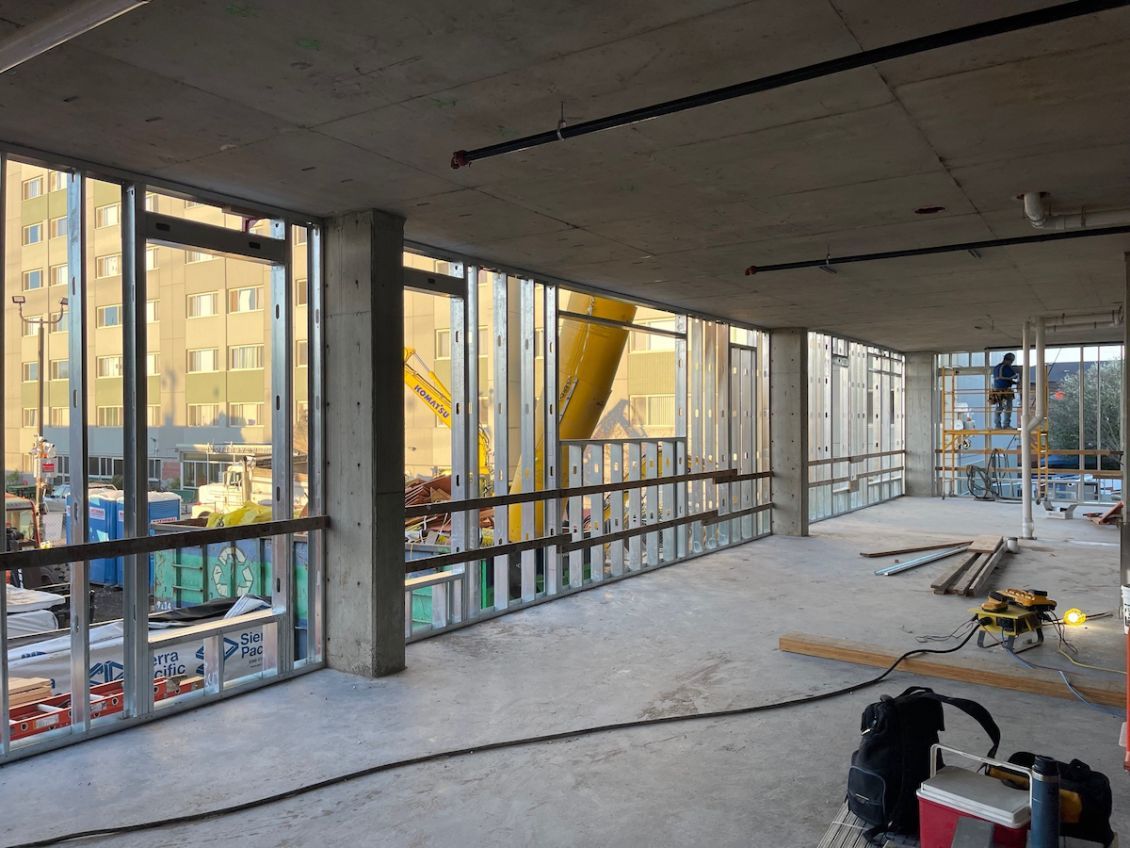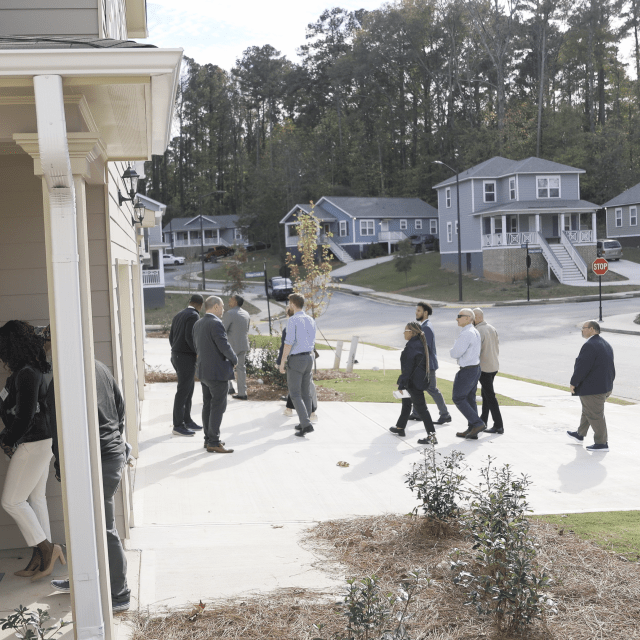For nearly 40 years, the Refugee Women’s Alliance (ReWA) has provided refugee and immigrant women and their families with culturally and linguistically appropriate services that promote inclusion, independence, personal leadership, and strong communities in Washington’s Puget Sound region.
The multiethnic nonprofit provides eight wrap-around services and programs in over 50 languages and dialects to help its clients thrive: English language learner classes, employment, housing, citizenship, youth, an early learning center, domestic violence support, and health and well-being.
Susan Lee, early learning center operations director at ReWA, talks about their latest project with Northaven Senior Living: creating intergenerational educational opportunities within a housing development of 89 affordable apartments supported by a King County Puget Sound Taxpayer Accountability Account (PSTAA) grant.
Managed by Enterprise's Pacific Northwest team, PSTAA's Early Learning Facilities Fund supports expanding and creating early learning centers in the county with a focus on underserved communities.
Tell us a little about your project and your partner.
Through a unique partnership with Northaven Senior Living, we will embark on a one-of-a-kind journey that will benefit children, seniors, and families in a North Seattle neighborhood. The children who attend ReWA's early learning centers (ELC) are from remarkably diverse cultural, economic, and linguistic backgrounds, and many of them experience intergenerational living at home. Promoting the relationship between children and seniors at the early learning center can foster an environment of understanding, respect, and the many crucial elements of social skills that we teach young children, such as communication, empathy, patience, and cooperation.
In our existing ELC locations, we have also had seniors in the classroom as volunteers and readers, and we have had nothing but wonderful experiences. The children will see the elders in the school setting, and they will learn to value individuals based on their characters and contributions rather than age or appearance. The senior residents will always leave with an uplifted spirit, which helps to promote mental acuity and provide a sense of belonging and purpose.
How many new early learning classrooms and slots will be created?
After completion, this project will create six new classrooms with a capacity of 102 slots, including eight infant slots with just under 80% subsidized slots to ease accessibility for low-income families.
Construction is underway and progressing smoothly. The building is framed through the fourth floor and was topped at the end of April. We’ve also received the permit for the buildout of the early learning facility, which will take up 8700 square feet of commercial space on the ground floor. The mechanical, electrical, and plumbing designers are finalizing the coordination so that when the construction of the building shell is complete in December, the buildout for the ELC will be ready to go.
How did the King County Puget Sound Taxpayer Accountability Account grant help move the development into the next phase?
Funding plays a vital role in the capital building of the preschool by providing essential resources and financial stability necessary for its development. With the grant support, the preschool can invest in critical infrastructure essential for creating a conducive learning environment. Additionally, the funding enables the preschool to expand its capacity, improve program quality, and enhance educational offerings, thereby providing more accessibility for additional students and families. Ultimately, the grant facilitates the preschool's growth and sustainability, contributing to its overall success in providing the community with high-quality early childhood education services.
What specific programs and services will be provided?
The site will offer a comprehensive range of programs to benefit the community's children and seniors, fostering intergenerational connections and mutual learning. These programs include childcare services from infancy to 5 years old, promoting their early development and education. Additionally, there will be a senior living partnership program that promotes active engagement and volunteering opportunities between seniors and early learners.
Furthermore, the site will house workforce development families that will reside in the new building, therefore potentially providing training and employment opportunities for those interested in becoming educators for the early learning center and contributing to the professional development and growth of the local workforce.
These initiatives will leverage community resources such as the Kraken, library, hunger prevention programs, Lake City Community Center, and the UW School of Nursing program to engage in health-related subjects. Many other community partners will also collaborate to promote lifelong learning and holistic well-being for community members of all ages.
This partnership will ensure more opportunities to explore and gain from the positive impacts of having a communal space where seniors get to share their experiences and wisdom, and children spread their innocence and never-ending creativity to those around them. REWA and Northaven Senior Living have been very intentional with designing the partnership to ensure a long sustainable partnership where everyone in our community can strengthen and build a sense of community and support. We currently have seniors volunteering to assist with the young learning with the Learn to Skate Program held every Wednesday morning at the Kraken Community Ice Plex in partnership with One Roof Foundation.
How would you advise affordable housing providers looking to move into a co-located partnership?
For housing providers considering a co-located partnership with an early learning center, it is essential to emphasize meticulous project planning and the ability to scale operations effectively within commercial space. Initially, thorough project planning should entail comprehensive assessments of community needs, assessment of available resources, and potential collaboration opportunities.
Providers should also evaluate the practicality of co-location, addressing logistical factors like space requirements, zoning regulations, and financial considerations. Scaling operations necessitates strategic planning to integrate services and optimize resource utilization seamlessly.
Providers should prioritize establishing clear communication channels, delineating roles, and responsibilities, and cultivating collaborative relationships with partners to maximize the partnership's benefits. Additionally, remaining adaptable to evolving community needs and circumstances is crucial while upholding a steadfast commitment to delivering high-quality services and positive outcomes for all stakeholders involved.
Success hinges on a shared vision, mutual trust, openness, honesty, and transparency, requiring patience, effective communication, and innovative thinking.

